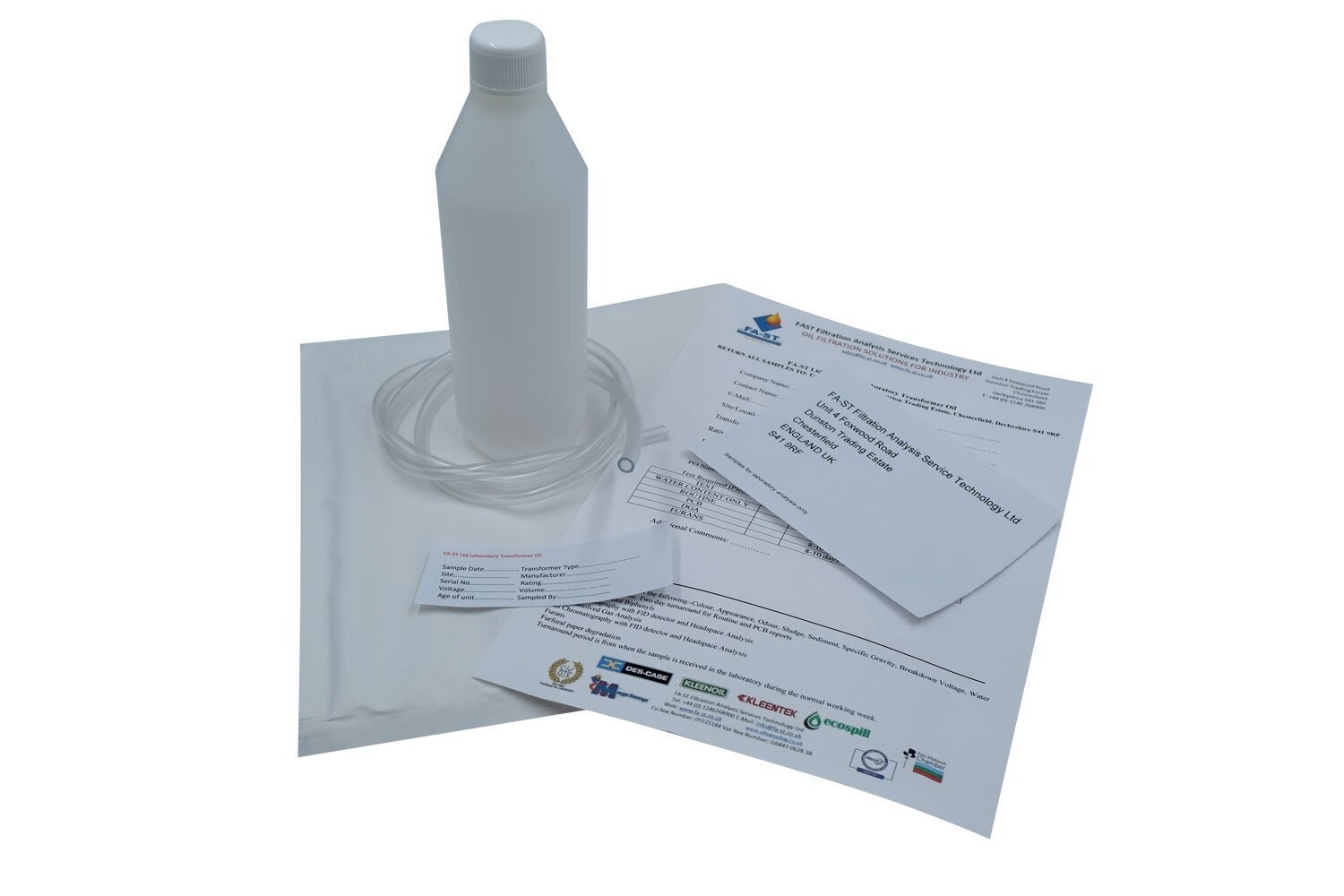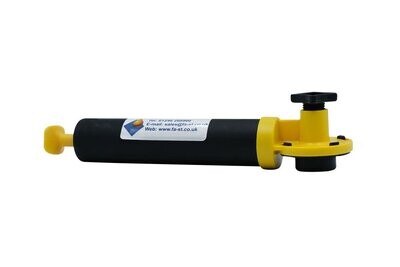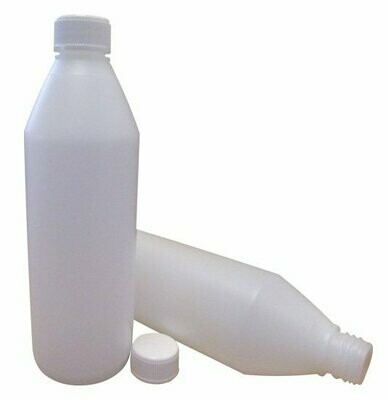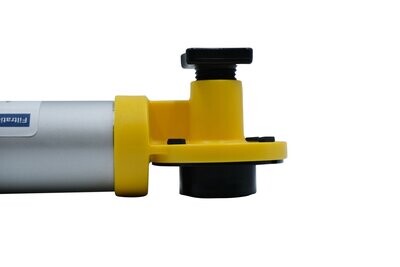Transformer Oil Analysis - Routine, DGA, PCB & Furfuraldehyde
The Routine Transformer Analysis Tests provide analysis on your transformer oil for:
- Colour /Appearance- The colour/appearance to gauge if there is any sudden deterioration in the oil during the time it is being analysed for different species. Colour has also been useful in the past as a cross check of the sample identity. For example, a sudden change from dark to light colour can indicate an oil change or incorrect sample designation.
- Acidity- The acidity level of transformer oil is measured to BS2000 Part1:1982 (also IP 1/74 method A). High acidities accelerate the degradation of the paper insulation and causes corrosion of the steel tanks, we would normally suggest changing the oil when the acidity approaches 0.3mgKOH/g, but expresses concern when it reaches 0.1mgKOH/g. It is believed that acidity increases exponentially with time.
- Fibre Estimation- An estimation of the fibre content in an oil sample is made by passing polarised light through the oil, clearly showing the fibres and any sediment which is present in the oil. The fibres are classed as being long (greater than 5mm), medium (2 to 5 mm) or short(less than 2 mm), and the number of fibres present is classed as few(1 to 5) or many(more than10). Sediment is classed as being light, medium or heavy. The presence of fibres in an oil sample, especially in combination with high water content, may result in a poor electric strength measurement. This is because wet fibres are drawn into the electrical field and cause arcing to occur. Fibres (& moisture) can easily be picked up during sampling and as such, it is important to ensure that sampling is correctly carried out.
- Electric Strength- A measure of the ability of an insulating fluid to withstand electric stress (voltage) without failure. Fluids with high dielectric strength (usually expressed in volts or kilovolts), are good electrical insulators.
- Water Content- The water content of an oil sample is measured using an automatic Mitsubishi moisture meter or the Karl Fischer titration and coulometric end-point. The instrument is calibrated electronically but is checked with the aid of standard water in methanol solutions. The water content is given in mg/kg(ppm). For an oil sample originating from a 33kV transformer, the water content is normally considered to be a little high when it reaches 20mg/lg(ppm) and too high when it reaches 25mg/kg)ppm). These limits vary depending upon the source of the oil sample. Moisture, in combination with the fibre in main tanks and selectors and carbon in diverters, dramatically reduces the electric strength of the oil to very unsafe levels which can result in plant failure. In tests conducted on a population of 100 primary transformers ranging from 132kV down to 33kV all with on load tap changers, the loss due to failure of selectors and main tank windings averaged about one per year. During the following period of 8 years in which moisture was monitored on an annual basis and controlled, with 30 ppm set as the value at which units were llovaced, the loss was reduced by approximately 90%, average moisture content being about 18 ppm.
Establishing the importance of moisture did not negate the sue of DGA. DGA was adopted as a very useful partner to moisture analysis and testing was carried out on an annual basis. This enabled fault trends to be monitored and remedial action to be taken before fault damage and supply loss occurred. It also allowed capital replacement programs for the plant to be more accurately determined.
- Resistivity- The resistivity of a liquid is a measure of its electrical insulating properties under conditions comparable to those of the test. High resistivity reflects low content of free ions and ion-forming particles and normally indicates a low concentration of conductive contaminants.
These characteristics are very sensitive to the presence in the oil of soluble contaminants and ageing products. Resistivity is normally carried out at ambient temperature but useful additional information can be obtained if the test is carried out at ambient and a higher temperature such as 90degrees Celsius.
Unsatisfactory results at both temperatures indicate a greater extent of contamination than a poor value at the lower temperature only, and the oil is therefore less likely to be restored to a satisfactory level by drying and low temperature filtration.
The Routine Transformer analysis also covers - Odour, Sludge, Sediment and Specific Gravity
- Dissolved Gas Analysis is widely accepted as the most reliable tool for the earliest detection of incipient faults in transformers and tap selector units. Hydrocarbon (mineral-based) oils and silicones are used as insulation fluids in transformers because of their high dielectric strength, heat transfer properties and chemical stability. Under normal operating conditions very little decomposition of the dielectric fluid occurs. However, when a thermal or electrical fault develops, dielectric fluid and solid insulation will partially decompose. The low molecular weight decomposition gases include hydrogen, methane, ethane, ethane, acetylene, carbon monoxide and carbon dioxide. These fault gases are soluble in the dielectric fluid. Analysis of the quantity of each of the fault gases present in the fluid allows identification of fault processes such as corona, sparking, overheating and arcing.
In the past, PCB’s were insulating liquids used for their non-flammable properties, mainly in transformers where a fire would be unacceptable, and as the dielectric fluid in capacitors. Unfortunately, the mineral oil used in transformers, switchgear etc. has become cross-contaminated over the years by PCB fluid being placed in dirty mineral oil tanks, by using oil conditioning equipment for both mineral and PCB liquids and by capacitors leaking into mineral oil systems.
PCB’s are fairly non-biodegradable and do tend to collect in food chains and as a result, legislation has been brought in to prevent widespread contamination. Liquids containing over 50mg/kg (or 50 ppm by weight) must be classed as injurious substances and disposal must be by high temperature incineration, which is expensive. In fact oil suppliers have agreed not to supply oil containing more than 10mg/kg and by the same token, any oil taken away over 10mg/kg is expensive to dispose of even though it may not be as high as 50/mg/kg. We use capillary column chromatography to determine the PCB
Furfuraldehyde Analysis
Provided the oil inside a transformer has been well maintained and there is no serious defect, the life of a transformer often depends upon the state of the paper insulation on the windings. It has been shown that in oil, as the paper degrades and becomes weaker, furfuraldehyde is one of the many degradation products. It has also been shown that a linear relationship exists between the logarithm of the mass of furfuraldehyde produced and the resulting degree of polymerization (DP) or strength of the paper. When the DP falls to approximately 250, the paper insulation is very brittle and the transformer can be considered to have reached the end of its service life. Therefore by measuring the furfuraldehyde concentration in the oil, the remaining service life of the transformer can be estimated.












